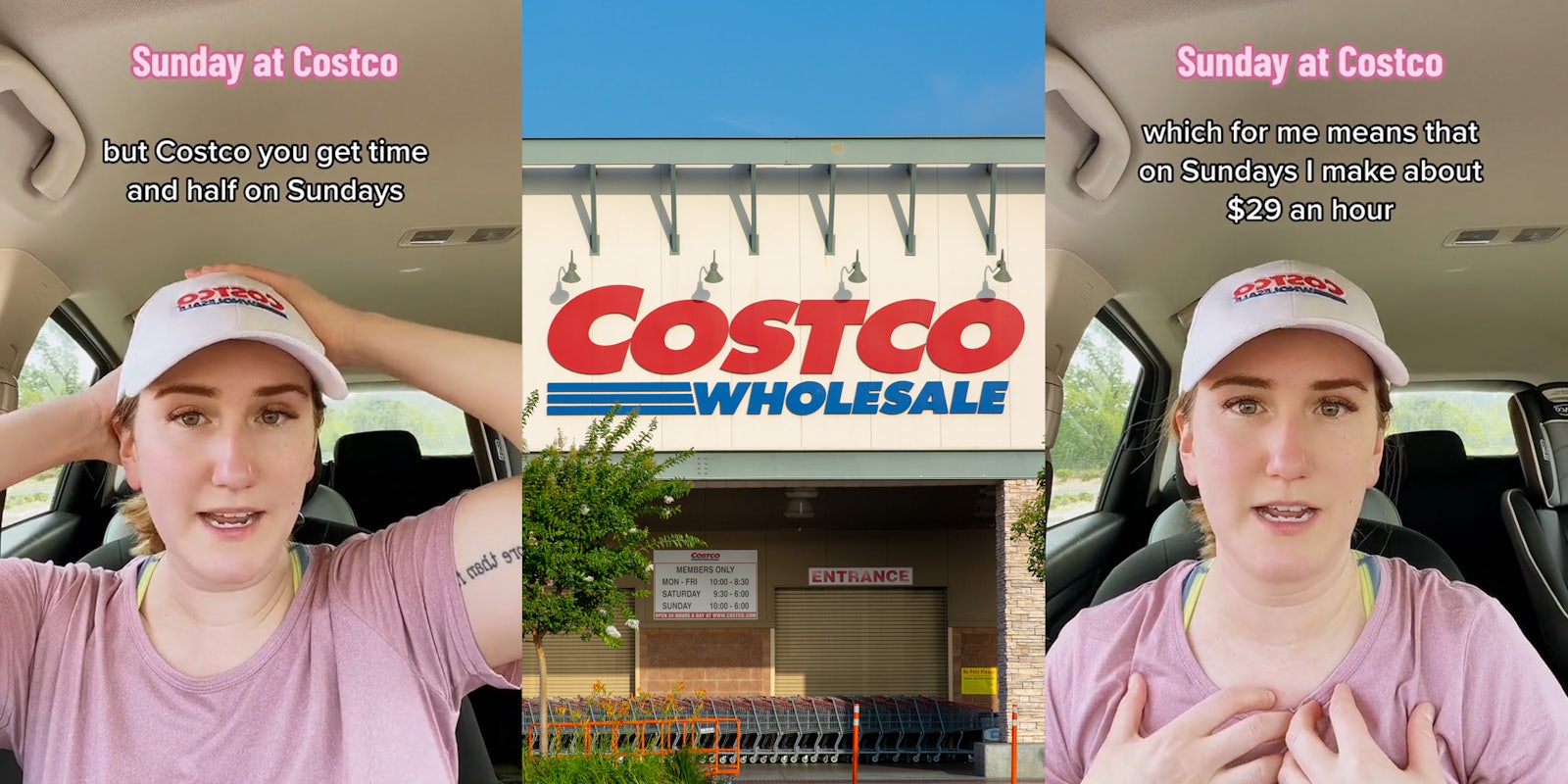In a viral TikTok video, a former teacher shares why she currently prefers working in a Costco bakery to teaching in a classroom.
User Maggie (@millennialmsfrizz) has a TikTok series and podcast about teacher burnout and the problems in education. While filming in her car after a shift at Costco, she reveals that Sundays are one of her favorite days to work for the wholesaler because she gets paid time and a half, which amounts to $29 an hour.
On that day, she made about $277 since she stayed a bit later to cover for a co-worker who was out sick.
“I did this while I was listening to Taylor Swift all day. Was living my best life,” Maggie says.
She went on to share that no customers were rude to her all day long, she didn’t have to check her email, and she didn’t have to prepare anything to take to work or take her work home with her—all juxtapositions to her time as a teacher.
A year prior, Maggie used Sundays to prepare for the upcoming school week. Now, she not only gets paid extra to work Sundays, but it also affords her a weekday as one of her days off instead. This allows her to take care of things that are important to her, including working on her Ph.D. and attending a parent-teacher conference for her daughter, something she wasn’t able to do while teaching.
“I’m grateful for my job at Costco,” Maggie says. “… And I’m grateful for the opportunity. It allows me to be home and do home stuff on weekdays as well.”
In the caption, she added that she especially enjoys working in the store’s bakery, “… because everything back there is just very peaceful. Yes, it’s fast paced, but there is little to no conflict, and everything works out as it should.”
@millennialmsfrizz I work in the bakery at Costco, and Sundays are one of my favorite days to work. On Sundays we are paid time and a half, so that means on Sunday I make about $29 an hour. When I come to work, I don’t have to prepare anything before coming to work. But I was a teacher I had to do lots of preparation in order to have a successful school day, and a lot of that ended up being stuff at home. When I leave work, I don’t take anything with me. As a teacher I had to take Work home. I especially enjoy working in the bakery, because everything back there is just very peaceful. Yes, it’s fast paced, but there is little to no conflict, and everything works out as it should. #costcofinds #costcotiktok #bakerylife #formerteacher #teachertiktok #teacherquittok #careertransition ♬ original sound – Millennial Ms. Frizzle
The video has garnered more than 2.6 million views and thousands of comments since Maggie shared the clip Sunday.
It is widely known that most teachers, especially in the public education system, are underpaid, often spend their own money on classroom supplies, and deal with significant burnout. In the 2020 to 2021 school year, the average starting salary for a teacher was $41,770 (about $20 an hour). Accounting for inflation, this is $1,689 less than teachers made in 2008-2009, the National Education Association reported.
Many commenters related to Maggie’s relief with her current work-life balance compared to the pressure she was under as an educator.
“I dream of not thinking about work outside of work,” one person wrote.
“It’s huge to not have to prep. And to walk out and be done,” another said.
“And you have the energy to make this upbeat video. When I leave work (teacher) I stare into space for about 7 minutes before I can start my car,” a third shared.
The Daily Dot reached out to Maggie for comment via email.
Update 1:50pm CT, May 12, 2023: In an email to the Daily Dot, Maggie explained that as a new teacher, she expected her feelings of overwhelm and struggle to dissipate as she gained experience. While she did become a better, more capable, and confident teacher, she continued to be saddled with additional labor without additional support or compensation.
“I realized that it would never get better because the system depends on the exploitation of teacher labor,” Maggie said.
Maggie pursued a Ph.D. with the hope that she’d be able to impact change from higher education but is no longer confident that she’ll be able to “use” the degree to make possible changes for teachers’ conditions.
“My own life and my own family needed to be my primary concern, and so I shifted my energy to heal my burnout, care for my family, and transition to a career that supports my goals,” Maggie said.



